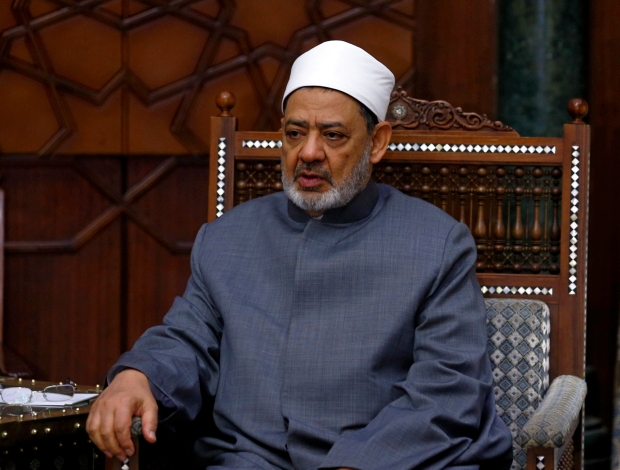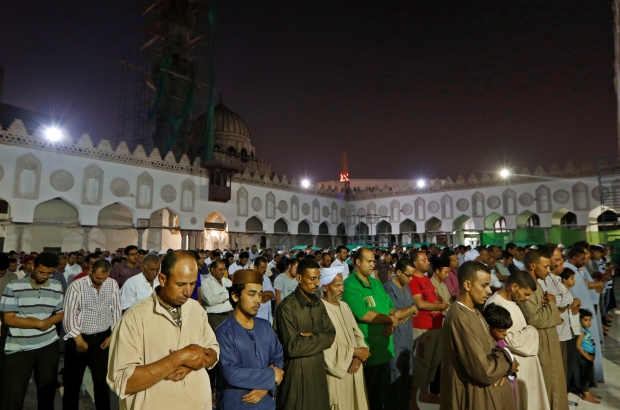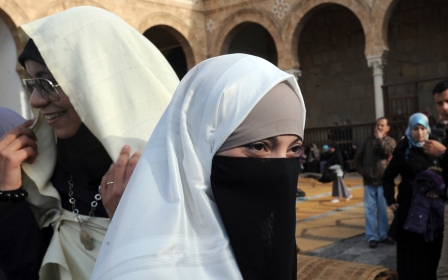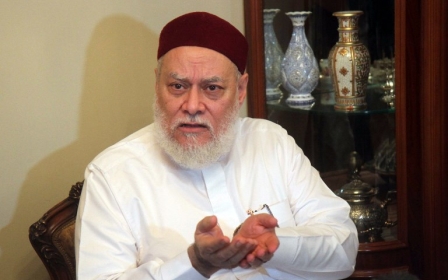Qatar crisis: The limits of holiness and authority for Islamic religious institutions
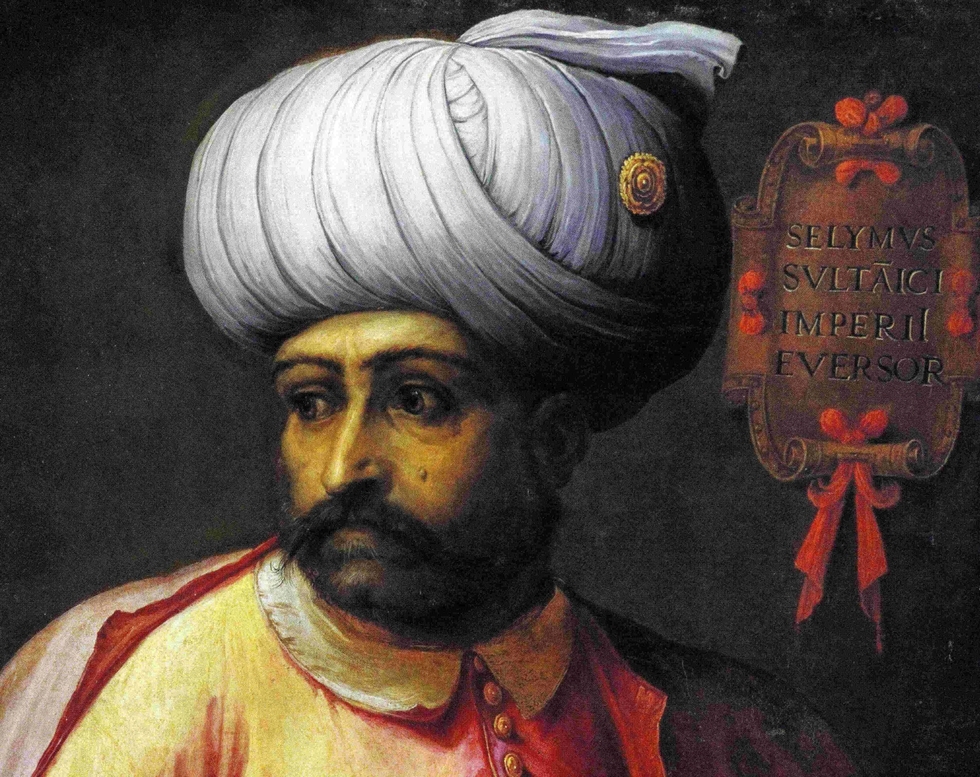
Nothing has been more startling in the ongoing crisis in the Gulf region, than the support rendered by the religious establishment in Egypt and Saudi Arabia to their respective governments in their attack on the other Arab and Muslim state of Qatar.
The muftis of Egypt and Saudi Arabia, the sheikh of al-Azhar, as well as the Supreme Council of the Senior Ulamas of Egypt and its Saudi counterpart, have shown no hesitation in declaring their approval of the blockade imposed on Qatar from early June.
Furthermore, the muftis of Saudi Arabia, accompanied by droves of the kingdom's most senior ulama, were the first to pronounce their oath of allegiance to Mohammed bin Salman, after the coup he staged against his cousin Mohammed bin Nayef, which removed the latter from Saudi’s line of succession.
The Sheikh of al-Azhar, who is an Egyptian and not a Saudi citizen, gave his congratulations to the rising Saudi emir in a direct phone call, during which bin Salman spoke of his profound appreciation of the role played by the religious establishment in safeguarding the "real Muslim faith" and the unity of its peoples.
But how has this religiously questionable relationship between the modern Muslim state and Sunni Islam evolved?
The problem of declaring war on a Muslim neighbour
In the May edition of the Middle East Studies International Journal, Turkish historian Abdurrahman Atcil published a significant piece about the stance of prominent Ottoman jurists and the rise of the Safavids - the Iranian dynasty whose empire at its peak dominated the Middle East, the Caucasus and parts of Central Asia - during the 16th century.
The Sunni scholars did not see that they had one absolute authority by whose final say they could abide.
Salim needed Islamic clout and pretext to accomplish his goal. So he called together senior scholars and notables from across the sultanate
Eastern Anatolia - an area which covers much of modern-day Turkey - become an arena for covert conflict between the Safavid state and the Ottoman sultanate. The Safavids used their Turkmen roots to weave close links with the Anatolian tribes, who shared the same ancestry.
In 1514, Salim the First, the Ottoman sultan, decided to confront the escalating threat and deal a pre-emptive strike against the Safavids.
But he knew that such a move would not be simple. Despite opposing Sunni Islam, the Safavids still claimed to be Muslim, and declaring war on a Muslim neighbour would, very possibly, undermine the legitimacy of the sultan, which was predicated on protecting Islam and fighting its enemies.
Salim needed Islamic clout and pretext to accomplish his goal. So he called together senior scholars and notables from across the sultanate.
Classical Ottoman historians have not provided a full list of those who were called. But we know that Sheikh-ul-Islam, the head of the Muslim clergy in Istanbul and the two chief judges of the sultanate, a Rumeli judge and an Anatolian judge, were among the attendees.
The closest Islamic history came to the idea of a religious establishment
Here was the problem.
In contrast to Christianity, Islam – and especially Sunni Islam – did not have any religious establishment. The Abbasids – who ruled much of Arabia, north Africa and Iran until the early 16th century - created the post of chief judge, which was regarded by Muslim scholars as a role without much power. Scholarly knowledge was not necessary for appointing judges.
Instead Muslim scholars - be they teachers, muftis, inspectors or endowment custodians - safeguarded community cohesion and formulated its discourse.
But a scholar was never regarded as sacred and his knowledge of law was not regarded as a consecration in the ecclesiastical sense.
To make the situation even more complex, there were not only multiple schools of jurisprudence within Muslim society, but also multiple sources of jurisprudential authority within each school
Muslims generally accepted that any fatwa (religious edict) issued by a given scholar was not binding except on those who embraced it. Instead they believed that scholars were guided by knowledge and piety. To make the situation even more complex, there were not only multiple schools of jurisprudence within Muslim society, but also multiple sources of jurisprudential authority within each school.
Thus the office of Sheik-ul-Islam was perhaps the closest that Islamic history came to the idea of a religious establishment.
The position developed from that held by Istanbul’s mufti. The Sheik-ul-Islam became the most prominent, the most important and the most influential scholar within the sultanate’s system, and was charged with managing the scholars who were affiliated to the state’s official apparatus (the majority of scholars continued to be independent of the state).
But, as Salim knew, there was a problem. The Sheikh-ul-Islam did not have any absolute or sacred authority. His fatwa would not have been enough to provide the legal justification for waging war against the Safavids. And that’s why he met with the Sheikh-ul-Islam and a group of other senior scholars.
Relationship starts to favour the state
All the official scholars were followers of the Hanafi school of jurisprudence. And the Sheikh-ul-Islam was always a Hanafi jurist.
But this did not in any tangible way affect the plurality of doctrinal schools within Ottoman Muslim society. This was the situation throughout the subsequent centuries of the sultanate’s rule: the office of Sheikh-ul-Islam was essentially functional rather than religious.
Since the second half of the 19th century, it has been necessary for the modern state to control the class of scholars in order to bolster its own hegemony and provide its legitimacy.
Although the trend of modernisation during the 19th and 20th centuries undermined much of the authority and influence of the scholars, they still took pride in representing religion and guarding shari’ah law
But the modern state is heavily centralised – and is not prepared to allow scholars, one of its most influential social forces, to enjoy full freedom outside a framework that it governs, including determining the scholars' relationship with the authorities. As a result, several institutions emerged including the office of Sheikh-ul-Azhar, the Grand Mufti, the Committee of Senior Scholars and so forth.
The position of Sheikh-ul-Azhar first came to prominence in the 18th century, although its significance did not emerge until later.
Originally, the Sheikh-ul-Azhar was elected by the scholars of the prestigious Islamic educational institute from among themselves. He was assigned to guard the mosque’s endowments and distribute them equitably among their legal recipients, and also manage education and relations among mosque scholars.
During the 19th century, the positions of Sheikh-ul-Azhar and mufti became rather important because they provided the Khedive regime in Egypt with the legitimacy it required, be it in dealing with its own people or in its endeavour to acquire more independence from Istanbul, which still regarded Egypt as an Ottoman district.
But this does not mean that the office of Sheikh-ul-Azhar evolved into an obedient tool of the Egyptian state, whether during the time of the Khedive or the kingdom or the republic, similar to other state’s institutions.
Although the trend of modernisation during the 19th and 20th centuries undermined much of the authority and influence of the scholars, they still took pride in representing religion and guarding sharia law.
This all made the Al-Azhar’s relationship with the modern Egyptian state an extremely complex affair.
Over time, the scholars lost what remained of their social influence and sources of power and the relationship became skewed in favour of the state and the ruling regime, be it the office of Sheikh-ul-Azhar or the role of the mufti or educational at Al-Azhar mosque university.
Saudi follows Egypt
Saudi Arabia, which did not emerge as a state until the 1930s, went in the same direction as Egypt.
The first attempt to institutionalise the kingdom’s class of scholars was made by King Abd Al-Aziz in the 1950s, when he created the position of mufti in the kingdom.
Most of those who occupied the position of mufti came from the house of Al-Sheikh, by virtue of the close relationship between the scholars, who are descendants of Sheikh Muhammad bin Abd Al-Wahhab, a theologian and founder of the Wahhabi movement, and Saudi’s rulers.
The link between the institutions of Muslim scholars and the modern state has continued and strengthened during recent years due to the pressing needs of both sides
Surprisingly, King Faysal bin Abd Al-Aziz, who is considered to be the actual founder of the modern Saudi state, annulled the position of mufti in the 1960s and transferred the role’s functions to the Ministry of Justice. The position was only revived during the mid-1990s by decree of King Fahd.
Faysal took a more far-reaching step when he founded the Committee of Senior Scholars in 1972, institutionalising the class of scholars and increasingly putting religious education under the state’s authority.
The link between the institutions of Muslim scholars and the modern state has continued and strengthened during recent years due to the pressing needs of both sides.
But it has not stopped some scholars from individually rebelling occasionally.
The more the state has reinforced its control over the institution of the scholars, the more it has recognised the religious leadership's referential authority while seeking to bestow some sort of sacredness upon the state's own leadership.
There is nothing surprising about this. Without a referential authority and some sacredness, the state would not have been in a position to benefit from this relationship in any case.
- Basheer Nafi is a senior research fellow at the Al Jazeera Centre for Studies.
The views expressed in this article belong to the author and do not necessarily reflect the editorial policy of Middle East Eye.
Photo: Salim the First faced the tricky issue of declaring war on a Muslim neighbour 500 years ago (copyright free)
New MEE newsletter: Jerusalem Dispatch
Sign up to get the latest insights and analysis on Israel-Palestine, alongside Turkey Unpacked and other MEE newsletters
Middle East Eye delivers independent and unrivalled coverage and analysis of the Middle East, North Africa and beyond. To learn more about republishing this content and the associated fees, please fill out this form. More about MEE can be found here.



